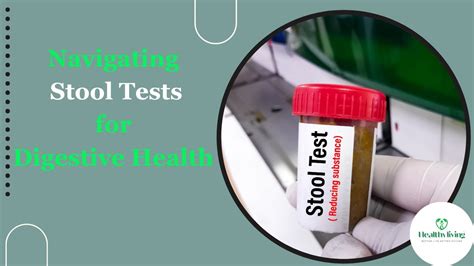Pregnancy is a critical period in a woman’s life, filled with anticipation and excitement, but also concerns about the health and well-being of both the mother and the baby. Among the numerous precautions pregnant women are advised to take, avoiding harmful substances is paramount. Smoking, including the use of e-cigarettes, is a significant concern due to its potential to cause harm to the fetus. While traditional cigarette smoking has been extensively studied and warned against, the use of e-cigarettes during pregnancy has also come under scrutiny. This article delves into the risks associated with using e-cigarettes while pregnant and explores safer alternatives for managing cravings.
Understanding E-Cigarettes
Before examining the risks, it’s essential to understand what e-cigarettes are. E-cigarettes, also known as vapes, are electronic devices that heat a liquid (known as e-liquid) to produce a vapor. This vapor is then inhaled, providing a sensation similar to smoking without the combustion of tobacco. The e-liquid can contain various substances, including nicotine, flavorings, and other additives. The perception that e-cigarettes are safer than traditional cigarettes has led some pregnant women to consider them as a less harmful alternative. However, the truth is more complex.
Risks of E-Cigarette Use During Pregnancy
Research on the specific effects of e-cigarette use during pregnancy is ongoing, but evidence suggests that it poses significant risks. Here are some key concerns:
Nicotine Exposure: Most e-liquids contain nicotine, a substance known to be harmful to the developing fetus. Nicotine can affect fetal brain development, potentially leading to cognitive and behavioral problems. It can also increase the risk of sudden infant death syndrome (SIDS) and may contribute to other complications such as low birth weight and preterm birth.
Other Chemicals: Besides nicotine, e-liquids contain a host of other chemicals, many of which have not been fully studied in the context of pregnancy. These can include heavy metals, ultrafine particles, and volatile organic compounds, all of which can be harmful when inhaled.
Respiratory Issues: Pregnant women who use e-cigarettes may be at an increased risk of respiratory issues, which can be particularly concerning during pregnancy when the body already undergoes significant changes.
Lack of Regulation: The e-cigarette industry is not as heavily regulated as traditional tobacco products, which means that the quality and safety of e-liquids can vary widely. This lack of oversight increases the risk of exposure to harmful substances.
Safer Alternatives for Managing Cravings
For pregnant women who are trying to quit smoking or manage nicotine cravings, several alternatives are considered safer than e-cigarettes:
Nicotine Replacement Therapy (NRT): Under the guidance of a healthcare provider, NRT can be a safer way to manage nicotine cravings. NRT comes in various forms, including patches, gum, lozenges, and inhalers. While it’s not without risk, especially in pregnancy, when used correctly and under medical supervision, it can be an effective tool for cessation.
Counseling and Support: Behavioral therapies, such as counseling and support groups, can provide pregnant women with the tools and motivation they need to quit smoking. These methods focus on the psychological aspects of addiction and can be highly effective.
Prescription Medications: In some cases, healthcare providers may recommend prescription medications like bupropion or varenicline to help manage nicotine cravings. However, the decision to use these medications during pregnancy should be made with caution and under close medical supervision due to potential side effects.
Healthy Lifestyle Changes: Engaging in regular physical activity, maintaining a healthy diet, and practicing stress-reduction techniques can also help manage cravings and improve overall health during pregnancy.
Conclusion
While the temptation to use e-cigarettes as a seemingly safer alternative to traditional smoking during pregnancy might be strong, the risks associated with e-cigarette use are significant and should not be overlooked. The safest approach for pregnant women who smoke or use e-cigarettes is to quit altogether, and there are many resources available to help them do so. By understanding the risks and exploring safer alternatives, pregnant women can make informed decisions about their health and the health of their baby, setting the stage for a healthier pregnancy and a healthier future.
FAQ Section
Can e-cigarettes help me quit smoking during pregnancy?
+While e-cigarettes might seem like a helpful tool for quitting, their safety during pregnancy is not well-established, and they contain nicotine and other harmful substances. It's recommended to use proven quitting strategies under the guidance of a healthcare provider.
What are the safest nicotine replacement therapy options during pregnancy?
+Nicotine replacement therapy (NRT) can be safer than e-cigarettes when used correctly and under medical supervision. Patches, gum, lozenges, and inhalers are options, but it's crucial to consult with a healthcare provider to determine the best approach for your specific situation.
Are there any natural ways to manage nicotine cravings during pregnancy?
+Yes, natural methods such as regular physical activity, a healthy diet, stress-reduction techniques, and staying hydrated can help manage cravings. Additionally, counseling and support groups can provide valuable tools and motivation for quitting.
Pregnancy is a time of great change and adjustment, and managing cravings or quitting smoking can seem daunting. However, with the right support, resources, and knowledge, it’s possible to navigate these challenges and set the stage for a healthy pregnancy and a positive future for both mother and baby.


